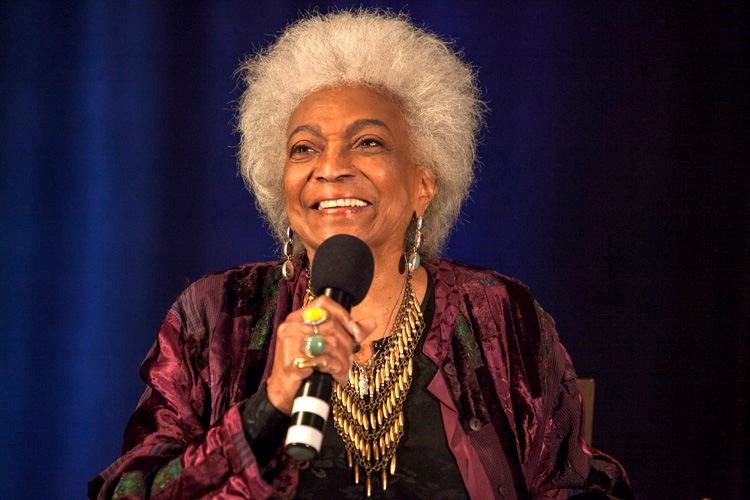William Shatner was the star of the first Northern FanCon three years ago and the star of the original series of Star Trek. The real agent of change from the original Star Trek appears at Northern FanCon in Prince George for the first time this Sunday.
Nichelle Nichols played Lt. Uhura, the communications officer, on the three-year run of the TV series and then in all six of the movies featuring the original cast of Kirk, Spock, McCoy and the gang. Although Shatner proclaimed at the start of every episode of the TV series that the crew of the Enterprise were boldly going where no man had gone before, in real life the only person doing that was Nichols.
Before her, black women on American network television were almost always servants. Star Trek creator Gene Roddenberry had the nerve to create a black female character who was an expert in her field and a no-nonsense officer with command authority. Unfortunately, the rebooted Star Trek movies with Zoe Saldana as the young Uhura feature her as far more hysterical than she ever was when Nichols portrayed her. In Star Trek: Into Darkness, Saldana's Uhura frets and screams through much of the epic final fight between Spock and Khan. The Nichols Uhura would have been right in there, kicking Khan's ass.
Nichols and Shatner took part in one of the first scripted interracial kisses ever seen on network television in the Plato's Stepchildren episode in 1968. The back story is even more fascinating, of course. The nervous network ordered a reshoot to take out the kiss but Shatner and Nichols collaborated to subtly ruin each of the retakes, leaving the network no choice but to air the episode.
Another fascinating backstory involves Nichols wanting to leave the show after the first season but a famous Star Trek fan talked her into staying. Dr. Martin Luther King made it clear to Nichols that Uhura was an inspiration to all black Americans and to young black girls in particular. He impressed upon her that she was a pioneer like him and she had to stay in the role.
Roddenberry's vision certainly wasn't perfect - Nichols had to rock that red miniskirt after all - but it was revolutionary, nonetheless. Along with the kiss, Uhura firmly and politely rejected Sulu's efforts to save the "fair maiden" in The Naked Time episode.
Put another way, nobody put Uhura (based on uhuru, the Swahili word for freedom) in a corner.
With Nichols breaking the stereotype, Diahann Carroll played a nurse and the lead character in Julia, a sitcom which ran for three years. That was quickly followed by Isabel Sanford's classic Louise Jefferson and then Esther Rolle's Florida Evans on Good Times. By the time Phylicia Rashad debuted as a working lawyer in 1984 on The Cosby Show, no one was surprised to see smart, sophisticated and powerful black women on TV anymore.
Nichols opened that door for all of them.
To the present day, Kerry Washington's Olivia Pope on the highly successful Scandal, which just finished its final season, started with Nichols.
Her Uhura character went on to shape all of the Star Trek TV shows that came after, as well. Every single one has featured one or more strong, resourceful women and one or more black characters in significant roles, culminating in the most recent Star Trek: Discovery with Sonequa Martin-Green playing the lead role of Michael Burnham.
Black women are still nowhere to be found in the Star Wars universe and were also absent from the Marvel universe until this spring's smash hit Black Panther.
Outside of Luke's aunt at the beginning of A New Hope, does any woman other than Princess Leia get to speak in the original Star Wars trilogy?
Same goes for racial diversity. For George Lucas, that meant casting English and Irish actors.
Other than the swashbuckling Lando Calrissian, played by Billy Dee Williams, the only black man in Star Wars before John Boyega took the screen as Finn in the modern (and Lucas-free) The Force Awakens was Darth Vader, of course. The voice behind the most famous one-liner in Star Wars (and perhaps all of motion picture) history - "No, Luke. I am your father" - belongs to the legendary African-American actor James Earl Jones (and to this day, Jones is still the one with the gravitas to say "this is CNN" for the American news network).
Shatner may be the Star Trek icon but the true cultural trailblazer will always be Nichols.
For that contribution, she deserves nothing less than a hero's welcome when she takes the stage Sunday afternoon in Prince George.
-- Editor-in-chief Neil Godbout



